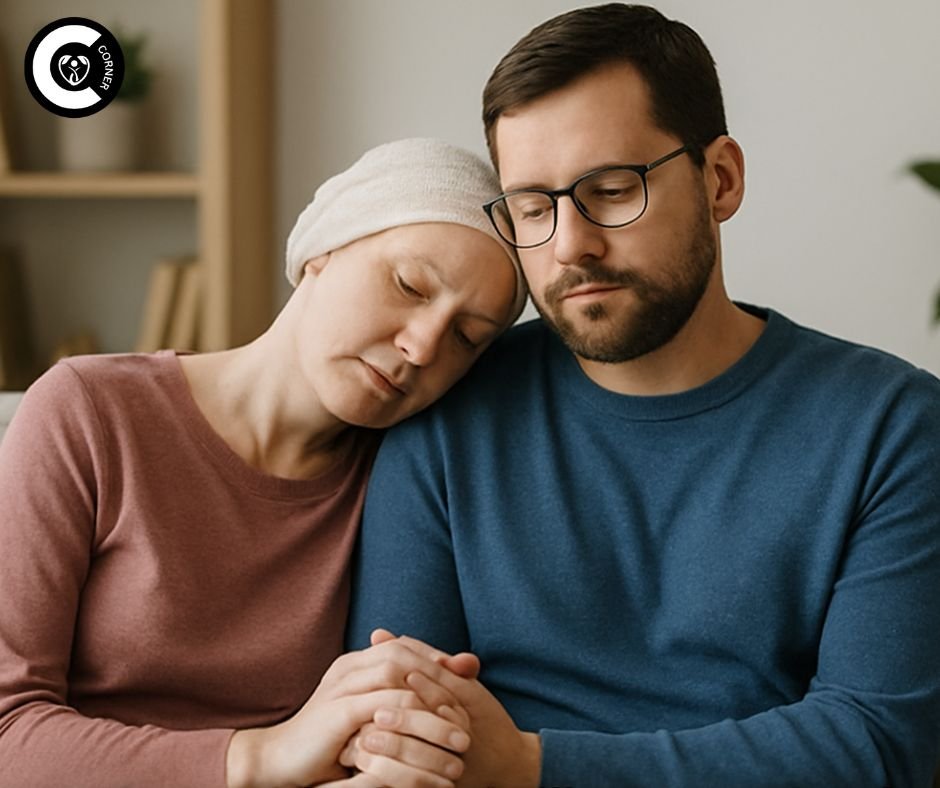That flutter of excitement when you meet someone new often comes with a knot of fear: “When do I tell them? Will they run? “Will they think I’m a problem?” If you have a chronic illness, including diabetes, an autoimmune disease, chronic pain, a neurological ailment, mental health issues, or any other long-term health problem, dating can be very hard on your emotions. The dread of being a burden makes you believe lies that you are too complicated, limiting, or undeserving of love.
Let’s take that apart now: You are not a problem. Your sickness is an aspect of your life, not who you are. Dating with a chronic disease can be hard, but it can also make you stronger in ways like resilience, empathy, and deep communication, which are all important for building lasting relationships. You need to be brave, kind to yourself, and have a plan to find love, but it is achievable.
Understanding Why Dating with Chronic Illness Feels So Daunting
The first step to dating with a chronic condition is to face your deepest concerns and the beliefs that society has about it. When you enter the often carefree world of dating, you have to deal with your symptoms, appointments, energy levels, and uncertainties all the time. The dread of being turned down is quite real—partners are scared away by medical facts or the idea of “extra work.” This concern is made worse by the stigma that makes people think that health is the same as worth.
Previous adverse experiences, such as partners who were uncomprehending or became resentful, bolster the conviction that disclosure results in abandonment. Before you even start dating, it can be very stressful to have to repeatedly explain your situation, defend your demands, or apologize for canceling. It’s okay to feel scared; these are normal feelings. The first step to getting past these problems is to realize that they exist.
Also Read: How Multivitamins Affect Sperm Quality
Shattering the Myth: Why You Are Fundamentally NOT a Burden
Reframing Chronic Illness and Relationships
It hurts to believe that “I am a burden.” Challenge this actively. You don’t have to feel like a burden because you have health requirements. Every person in a relationship has their own wants and limits. Your things look different, but that’s not a bad thing. Relationships work best when both people give and take, not when one person does the same thing over and over.
Your ability to bounce back, your ability to understand others, your profound appreciation for good days, and your communication skills that have been tried and true are all very valuable. A properly supportive partner views your disease as just one component of the amazing, complicated person they pick. Your value is based on who you are, not what you can do physically. Don’t believe the story that says that continual energy is the same as human value.
Recognizing a Truly Supportive Partner for Dating with Chronic Illness
Identifying Authentic Connection Beyond Illness
When dating someone with a chronic disease, look for these important traits: Empathy means attempting to comprehend what you’re going through without judging you. Patience means embracing flares, cancellations, and changes as a normal part of life. Active Listening—truly hearing what you need and care about. Respect for Boundaries means respecting your “no,” energy limits, and not putting yourself under pressure that could hurt your health.
Dependability means showing up all the time and showing that they care about you. A supportive spouse sees you as a whole person, not just your condition. They see your passions, thoughts, dreams, and oddities. They applaud your wins and give you comfort without feeling sorry for you. This isn’t about finding someone to take care of you; it’s about finding someone who will love you completely.
Practical Strategies for Navigating Dating with Chronic Illness
Mastering Disclosure: When, How, and What to Share
Disclosure makes people anxious. Important rules: Trust and Safety First: Tell when you feel safe physically and emotionally, and have some fundamental trust. Only go into deep information on a first date if you have to. Focus on how it works Early: Share practical implications: “I sometimes need flexible plans because I’m tired,” or “I have a health condition that needs extra rest.” Choose the Right Place: For in-depth interactions, you need solitude and comfort.
Be clear and direct: Say your diagnosis in straightforward language, talk about the main effects, and how you deal with them. Focus on being proactive. Gauge Reaction: Asking thoughtful questions and showing empathy are good signs. Ignoring someone or being afraid are bad signs. Set realistic expectations: Be honest about your limits while yet showing that you want to connect. Disclosure is also how you discover a partner who will support you.
Essential Boundary Setting for Energy and Well-being
Setting limits is good for your health and vitality. Know Your Limits: Know your limits when it comes to socializing, activities, places, and emotional work. Talk to each other clearly and early: Say what you need ahead of time: “I need a quiet dinner tonight,” or “Let’s plan for next week since I’m resting this weekend.” Be firm and don’t apologize: “That won’t work for me” is a good reason. A partner that is supportive understands this. Make Non-Negotiables a Priority: Take care of sleep, medicine, therapy, and light exercise. Giving up these signals shows weak boundaries. Pay attention to your body: Taking a break by canceling is not a sign of weakness; it is a sign of self-respect. Boundaries make real, lasting connections possible.
Cultivating Connection and a Healthy Relationship Foundation
Foundational Communication for Dating with Chronic Illness
It is really important to keep talking to each other honestly. Vulnerability Practice: Talk about your worries (such feeling like a burden), your disappointments, your joys, and your successes. Say “I” statements: “I feel overwhelmed by last-minute changes to plans because of energy management.” Be Specific About What You Need: “During a flare, quiet company or help with groceries helps most,” or “I need to know that my illness isn’t a problem.”
Make a plan Check-ins: Set aside time on a regular basis to talk about what is working and what needs to be changed. Listen actively: Ask your partner to tell you what they think and need. Let them know their sentiments are real. Say Thank You: Thank them often for their understanding and hard work. This creates a lot of trust and closeness.
Nurturing Intimacy and Shared Joy Together
Focus on connection beyond just managing illness. Change the Dates: Enjoy nice nights at home, seated activities like games, movies, and cooking, light walks, or virtual dates. Put connection before of work. Celebrate Being Able to Change: Working together to find creative solutions helps people work together. Make emotional closeness a priority: Deep talks, sharing dreams, and being thankful for what you have all help you get closer to each other.
Talk about physical closeness: Talk about how your health condition affects your sex drive, energy, or abilities in a direct way. Don’t worry about how well you do; just enjoy yourself and interact with others. Savor Good Days: Make happy memories when you have the energy. People who are dating someone with a chronic disease frequently have relationships that are deeper and more robust.
Conquering Fear: Resilience and Rejection in Dating with Chronic Illness
Processing Rejection Related to Chronic Illness
Being turned down hurts. If it happens after you tell someone, it can feel like proof that you are “broken.” Don’t let rejection affect your worth: If someone leaves because of your health, it shows that they are not ready or able to be with you, not that you are not worth it. Think of it as a filter: This rejection is painful, but it stops you from putting money into someone who isn’t right for you.
Feel, then refocus: Recognize your grief or anger, and then make a conscious effort to focus on your talents and ability to bounce back. Don’t think the worst: Just because one person turned you down doesn’t imply no one will ever desire you.
Building Unshakeable Self-Worth and Resilience
Building resilience quiets the voice that says you are a burden. Practice radical self-compassion by treating yourself the way you would a friend. Stop Talking Bad About Yourself: When you think, “I’m too much,” say, “I deserve love and connection.” Be proud of your strength: Recognize the great bravery needed every day. Put money into your whole self: Take care of your passions, activities, and friendships that have nothing to do with being sick.
Find Community: Reach out to people who are going through the same things you are. Think about going to therapy. A professional can help you break down negative thoughts and create healthy habits. Your deepest sense of self-worth is your best protection and your best way to attract real love.
Embracing Your Worth and Taking Confident Steps
Self-Love: The Foundation for Dating with Chronic Illness
The most important relationship is the one you have with yourself. Self-love means believing that you are valuable, even if you are sick. Learn to accept yourself: Don’t allow your sickness define who you are. Hard days don’t make you less valuable. Put first Self-Care that Never Stops: It’s important to take care of your needs for rest, food, and mental wellness.
Set Limits for Yourself: Fight against ableism that you have learned and the urge to always be “on.” Celebrate who you are by focusing on your interests, skills, sense of humor, and kindness. When you love yourself, you draw in partners who recognize your brightness and won’t settle for less.
Taking the Leap: Practical First Steps Forward
Are you ready to stop hesitating? Start from where you are: Get back in touch with friends, join hobby organizations that are easy to get into, and practice interacting in low-stakes circumstances. Be Careful When Choosing Platforms: Use tools that let you be subtle; if you’re comfortable, give hints about your lifestyle. Focus on what you have in common: Put kindness, respect, and humor first, and make enduring friendships by doing high-energy activities together.
Set Realistic Expectations: It takes time to find a connection, and everyone gets turned down. Take your time. Celebrate Your Courage: Every step you take shows how brave you are. Have faith in your gut feeling: Pay attention to how safe, respected, and comfortable you feel. You want the right partner, not just any mate.
Conclusion: Claiming Your Rightful Space in Love and Connection
Having a long-term sickness changes how you date. It’s common to be afraid of feeling like a burden, but this is quite wrong. You are not a problem. Your health is a situation, not a sign of how much you are worth or how much you can love. You have certain strengths that come from being strong and caring. Dating someone with a chronic disease requires being aware of yourself, being able to communicate clearly, setting hard boundaries, and loving yourself deeply.
It means looking for partners who are truly understanding, patient, and respectful—people who accept you for who you are. There may be challenges and rejections, but they are signs that you are not compatible with someone and should look for someone who can help you. Accept your worth as it is. Take care of your full self. Take a brave step forward, knowing that you deserve love, connection, and happiness just as you are. You are the one who writes your story, and your disease is a part of it. Tell a story that is full of love. You’re ready.





[…] Also Read: Ultimate Guide To Date With Chronic Illness […]